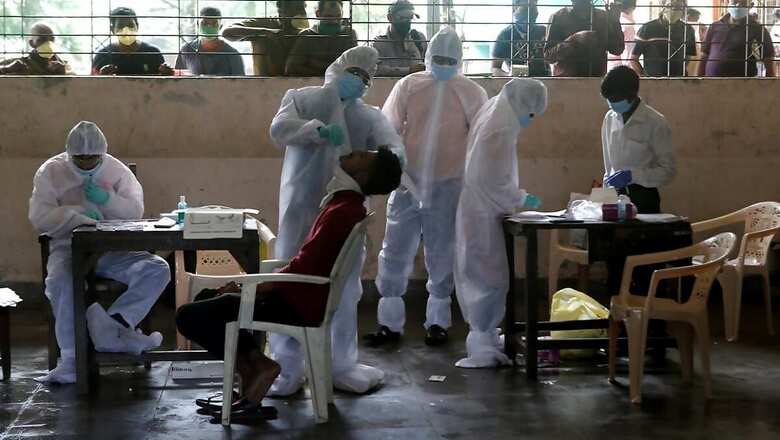
views
This insight of Winston Churchill after the end of the World War II aptly applies to the present COVID-19 crisis and the process of policy making.
The year 2020 would be recalled in future just like the way we recall 2008 or 1991. The already slowing down economy has been affected badly and we have come to see a decline of all economic indicators like never before. The supply chains are affected, exports have declined due to the global effect of the pandemic and domestic demand is also much lower than normal. The GDP growth rate is expected to remain in the negative territory as confirmed by the RBI governor.
All of the negative news with respect to the economy reminds me of Churchill’s insight — to never let a good crisis go to waste. This crisis presents a unique opportunity for policy makers to take bold steps and bring about reforms which would have a long-term impact on the economy.
It will be incorrect to say that the Indian economy is facing problems only after the pandemic hit us. COVID-19 did not exactly create new problems, it merely accentuated the existing ones. The lack of a wide cash transfer scheme at the national level, policy ignorance towards the self-employed such as tailors, taxi drivers or junior lawyers are just to mention a few.
COVID-19 has taught us the importance of decentralisation. Power, authority and decision-making concentrated in a region or only one institution would definitely be the wrong way ahead. Highly concentrated systems are much more vulnerable to delays in decision making and are inefficient in delivering.
Decentralisation, therefore, remains crucial in responding to events and also tweaking the response region-wise as one size doesn’t fit all. It also extends to having decentralised supply chains which are much more difficult to be affected by unfavorable events.
Secondly, taking cue from the first point, is digitisation, the importance of which can never be overstated. James Manyika, chairman of the McKinsey Global Institute, explains that many trends already underway in the global economy have been accelerated by the impact of the pandemic. This is especially true of the digital economy, with the rise of digital behavior such as remote working and learning, telemedicine and delivery services. Other structural changes may also accelerate, including regionalisation of supply chains.
The future of work has arrived faster, along with its challenges — many of them potentially multiplied and, therefore, there is a need for the workers to adapt to occupational transitions. Hence, skill development, digital literacy and the knowledge of a world language such as English would be needed by the workers in a post-COVID-19 economy if they want to strive and succeed. There is intense competition for market share and jobs and those with the above qualities are more likely to succeed.
Public policy in the post-COVID period should also focus on how to continue to reap the benefits that have been a silver lining in this otherwise merciless pandemic. The rivers are cleaner than before, the air is pollution free and the people have become more concerned about their health and hygiene, something India has been neglecting all these years.
The Indianisation of the economy is what India will see. The sheer dependence on imports will be replaced by encouragement to local manufacturers and substitution of imported goods with indigenous products. Several industries will have to have a makeover and start becoming self-reliant in manufacturing of intermediate and final goods. With executive ban on imports, this will be made easier if it is supplemented with banking support, investment in R &D, revision of public policy, publicity, education and public support.
At the end, I would like to mention how heartening it is to see the closeness between democratic countries such as the US, Australia, Canada and the UK with India. This is because of a strong base of shared values, common interests, respect for the world as a community and people to people connect between them. India has always risen to the occasion in the face of any crisis and the pandemic will be no different. I am also sure that India would not return to the world of the past but will see a much better world.


















Comments
0 comment